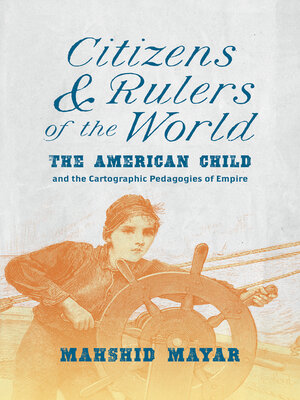Citizens and Rulers of the World
ebook ∣ The American Child and the Cartographic Pedagogies of Empire
By Mahshid Mayar

Sign up to save your library
With an OverDrive account, you can save your favorite libraries for at-a-glance information about availability. Find out more about OverDrive accounts.
Find this title in Libby, the library reading app by OverDrive.



Search for a digital library with this title
Title found at these libraries:
| Library Name | Distance |
|---|---|
| Loading... |
By delving into the complex, cross-generational exchanges that characterize any political project as rampant as empire, this thought-provoking study focuses on children and their ambivalent, intimate relationships with maps and practices of mapping at the dawn of the “American Century.” Considering children as students, map and puzzle makers, letter writers, and playmates, Mahshid Mayar interrogates the ways turn-of-the-century American children encountered, made sense of, and produced spatial narratives and cognitive maps of the United States and the world. Mayar further probes how children’s diverse patterns of consuming, relating to, and appropriating the “truths” that maps represent turned cartography into a site of personal and political contention.
To investigate where in the world the United States imagined itself at the end of the nineteenth century, this book calls for new modes of mapping the United States as it studies the nation on regional, hemispheric, and global scales. By examining the multilayered liaison between imperial pedagogy and geopolitical literacy across a wide range of archival evidence, Mayar delivers a careful microhistorical study of U.S. empire.
To investigate where in the world the United States imagined itself at the end of the nineteenth century, this book calls for new modes of mapping the United States as it studies the nation on regional, hemispheric, and global scales. By examining the multilayered liaison between imperial pedagogy and geopolitical literacy across a wide range of archival evidence, Mayar delivers a careful microhistorical study of U.S. empire.







